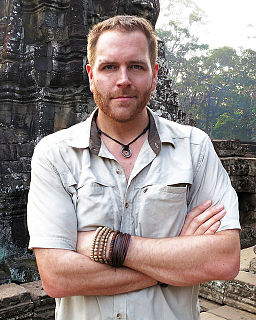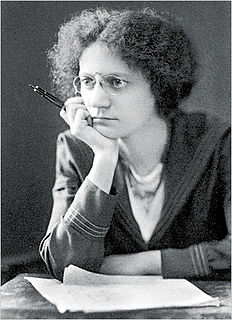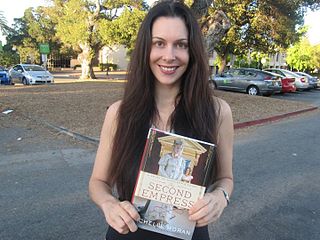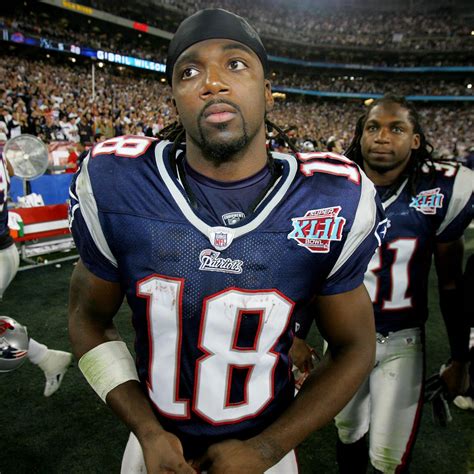A Quote by Pamela Sargent
People who know very little about ancient Egypt are most likely, if they know anything at all, to have at least a vague idea about the Pharaoh Akhenaten and be able to recognize the face of his beautiful wife, Nefertiti.
Related Quotes
One current of continuity runs underneath all the abortive phases of my life. From childhood on I have been obliged to drop anything I was doing to run after any man who seemed to know a little more than I did about God . . . I most want to write about: how a modern woman has sought the face of God-not the name nor the fame but the face [ital] of God-and what adventures came to meet her on this ancient human path.
We hear a lot about theological justifications for the conflicts, but very little about the scientific evidence, which in no way supports them. The time period in which Moses was leading his people out of Egypt, into the Promised Land, the Promised Land was Egypt. We know that. Archaeological records are very clear. The Egyptians were avid bureaucrats even in those days and kept very scrupulous records. I think it's important for us to realize this conflict is built on a legend. It has no scientific support.
Distinguish open-minded people from closed-minded people. Open-minded people seek to learn by asking questions; they realize that what they know is little in relation to what there is to know and recognize that they might be wrong. Closed-minded people always tell you what they know, even if they know hardly anything about the subject being discussed. They are typically made uncomfortable by being around those who know a lot more about a subject, unlike open-minded people who are thrilled by such company.
If you tell certain people that you like Kerouac, they assume that's all you read, like you don't know anything else about literature. I recognize all the things that people dislike about the way he writes - his tone and the sentimentality of it all. But those books were there for me at a very important point in my life.
...when I came back, I found Mom sobbing at the kitchen table...Then I asked her what had happened. 'Nothing,'she said. 'I was thinking about that man...I started thinking about...if he and his wife and their other child are okay, and I don't know. It just got to me.' 'I know,' I said, because I did know. Sometimes it's safer to cry about people you don't know than to think about people you really love.
Because you've been exposed to Western tonal music, you know after a certain chord sequence what the next possibilities are. Your brain has compiled a statistical map of which ones are most likely and least likely. If the song keeps hitting the most likely notes, you'll get bored, and if it's always the least likely ones, you'll get irritated.
For me, 9/11, it was my last year in college and I didn't know anything about Al Qaeda, I didn't know anything about bin Laden, I had no idea. I think probably after a few years when I started seeing how the country and the policy was shifting due to terrorism, I wanted to know: Why are these people terrorizing us, and who are they?
Tuthmosis IV was, like his father Amenhotep II, a belligerent pharaoh and one of the first to wage war without provocation beyond Egypt's boundaries. As a result of his aggressive attacks slaves and foreign elements were common in Egypt. Consequently, there was more intermarriage during his reign than at other times. Egypt was visited by merchants and traders and was extremely prosperous and cosmopolitan during this period.



































